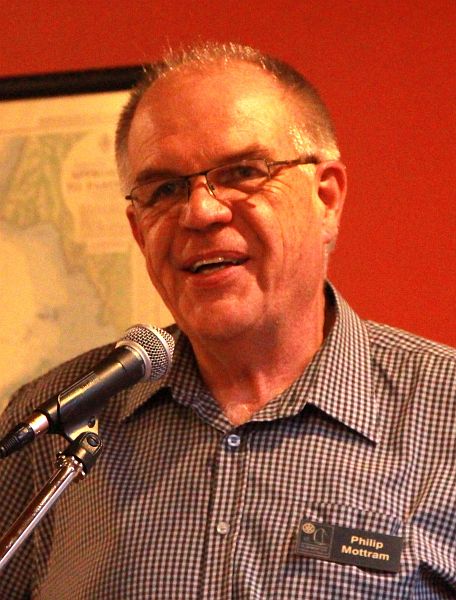 Tonight, Philip Mottram gave us the Viewpoint. He said ...
Tonight, Philip Mottram gave us the Viewpoint. He said ...
I believe education is at risk of becoming a commodity, something that can be bought and consumed. Educational institutions have become service providers. Their “success” is narrowly measured by crude instruments - assessments that are a snapshot of part of what students have learnt, not the whole picture.
Recently there have been opinion articles in Stuff where students bemoan that their “purchase” of a degree did not gain them a job ticket.
Parents bemoan their “investment” in private school fees not returning the yield they anticipated.
Taking a step back - Tomorrow’s Schools introduced the competitive model. Competition was supposed to improve the breed. A business model or Darwinian evolution, depending on your outlook. Winners and losers. League tables were drawn up and schools did everything in the rule book – and sometimes outside the rules to climb to the ladder.
As a result, schools have become heavily focussed on assessment, driven by test results, not the broader aims of the curriculum. Teachers are very adept at guiding students through assessments. Students are motivated by “gaining credits” not the learning that those credits are the measure of.
There is pressure from all corners on students and teachers to ensure students “pass”. Teachers retain control of the learning process to ensure they, the teachers don’t “fail” in their job. Students ask - exactly what answer should I give to ensure I get an excellence grade? Not - have I got a full understanding of the topic I’ve just been learning about?
This pressure to pass assessments has created a dependency on teaching, not independence of thought and learning on the part of the student. It’s about narrow, specific details, not broad understanding.
Courses are designed based on the assessments at the end, not the content that is being taught. The tail is wagging the dog.
This approach has done our students a great disservice. We have a cohort of students that have become very skilled at passing tests, but not necessarily capable of demonstrating and applying the knowledge and skills they have acquired outside the classroom environment. Not capable or confident to search out new learning themselves.
A brief example:
Secondary schools were presented with a series of targets. One was 85% of all students achieving NCEA Level 2 (Sixth Form Certificate in old speak) by the age of 18.
The underlying aim was laudable – to have the vast majority of our school leavers job ready, but by focusing on the measure, and not the aim, we had students and teachers concentrating on gaining credits, any credits to achieve Level 2. Not the learning and experiences that would make them truly job-ready. Stuck on an assessment treadmill.
By fixating on numerical targets, we have become slaves to “metrics” not the master.
We have teachers playing it safe by teaching for assessment, and not having the confidence in their abilities to teach the curriculum effectively and have their students pass assessments because they have developed a broad and deep understanding of the subject.
We have students and their parents expecting teachers to do a lot of the leg work to ensure students pass assessments.
And this is partly because the motivation often used is the same as Pavlov used with his dogs. Do this because you’ll earn credits. Not do this because it is actually quite interesting and could be really useful later on.
So, if you haven’t guessed, my viewpoint is – we have debased the value of education by treating it as a commodity.
It is not a service that can be bought. It is more than that. It is both a right to receive and a privilege to participate in.
It is a journey that prepares the student to be a contributing, fully functional member of society. To become a confident, connected, actively involved lifelong learner. And those are words from the New Zealand Curriculum, not some assessment standard.
The real “prize” at the end of any stage in education is the learning that has occurred. It is the journey that is important, not the destination. The certificate you receive is just a stamp in your passport marking a waypoint. And you just can’t buy that stamp, you’ve got to tread the path first.
